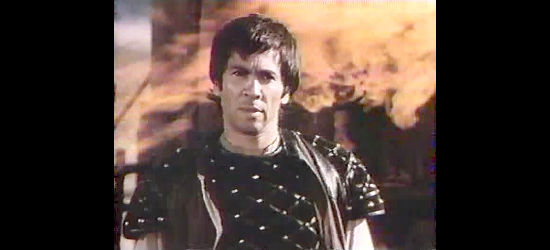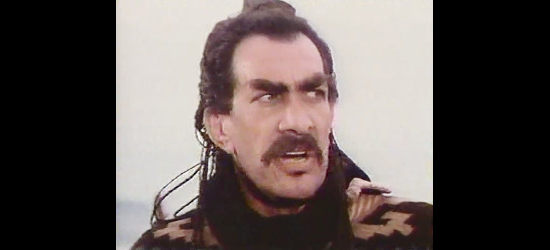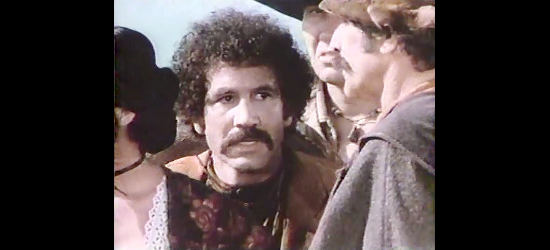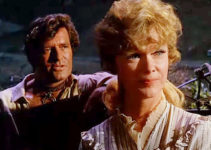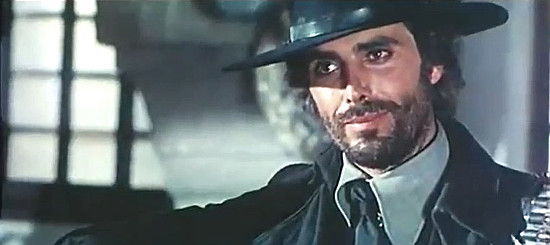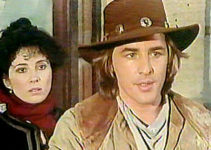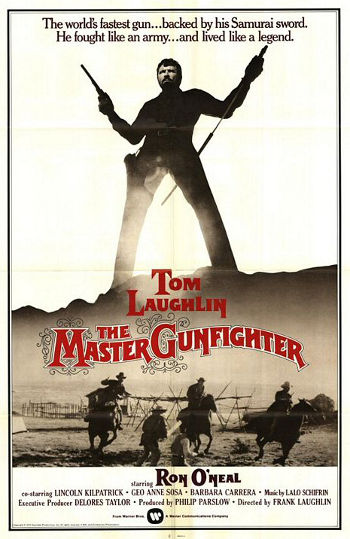 Tom Laughlin plays the title character. His real name is Finley McCloud, and he’s mightly deadly with a six-gun and a samuri sword.
Tom Laughlin plays the title character. His real name is Finley McCloud, and he’s mightly deadly with a six-gun and a samuri sword.
Both come in handy after a split with his adopted Mexican family in the early days of California.
In order to pay the new U.S. taxes on the family’s land holdings, Don Santiago and his son Paulo steal a U.S. gold shipment.
And in order to cover up the theft, they must massacre an Indian village.
Finley, married to Paulo’s sister, is tormented for not doing more to stop the murders and makes Paulo promise never to repeat the deed.
But taxes must be paid.
Three years later, Paulo’s planning another theft and another massacre.
And he knows he’d better have Finley killed before he hears of those plans.
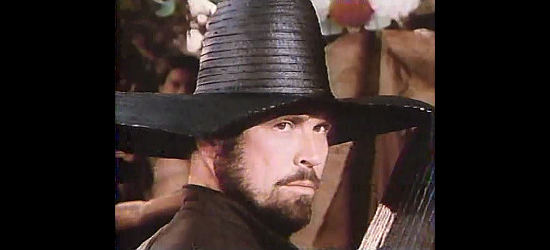
Tom Laughlin as Finely, the front of his sombrero chopped off by adversaaries in The Master Gunfighter (1975)
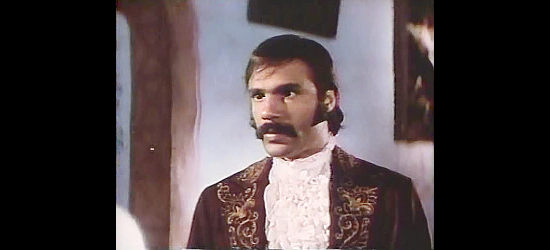
Ron O’Neal as Paulo, the brother-in-law who goes back on his word to Finley in The Master Gunfighter (1975)
A fairly unique plot keeps this from being as bad as its reputation.
Paulo and his men light a fire atop the wrong peak along the California coast, guiding the ship laden with gold into a treacherous stretch of rocks.
Once the ship sinks, the villagers are hired to go out in their fishing boats and retrieve the gold. They’re then massacred to cover up the deed.
Unfortunately, it’s also a rather dull film, with Laughlin relying on the same low-key persona that audiences apparently loved in in the surprise hit film “Billy Jack” (1971).
This film, by the way, wasn’t really directed by Frank Laughlin; that would be Tom’s son, who was 9 at the time.
As for the Billy Jack series, this film followed 1974’s “The Trial of Billy Jack” and preceded 1977’s “Billy Jack Goes to Washington.”
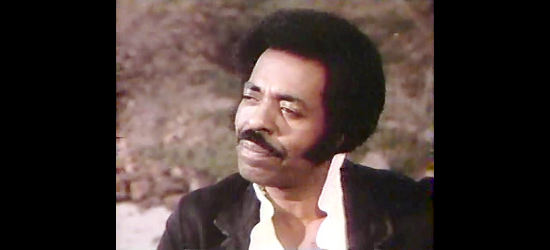
Lincoln Kilpatrick as Jacques, the man who rescues Finley from Paulo’s men in The Master Gunfighter (1975)
Directed by:
Tom Laughlin
as Frank Laughlin
Cast:
Tom Laughlin … Finley
Ron O’Neal … Paulo
Lincoln Kilpatrick … Jacques
Geo Anne Sosa … Chorika
Barbara Carrera … Eula
Victor Campos … Maltese
Hector Elias … Juan
David S. Cass Sr. … McDonald
Richard Angarola … Don Santiago
Mike Lane … Frewen
Angelo Rossito … Sideshow midget
Burgess Meredith … Narrator
Runtime: 121 min.
Memorable lines:
Maltese, Paulo’s main henchman, of Finley: “Paulo, Paulo, Finley has a softness in him, a woman’s sensitivity. He does not understand that life demands order and discipline and that sometimes people are expendable and must be sacrificed for the greater good.”
A gambler after Chorika, claiming to be protected by crows, cheats them: “Let’s just pretend we’re crows and start nibbling on her flesh.”
Paulo: “A few lowly peasants had to be sacrificed in order to save the lives of 1,300 people. This is the cruel way of the frontier.”
FInley: “I’m tired of the frontier way. Look, Paulo, I can face any man who’s staring me in the eye and drawing on me. And I can kill him. I can kill him just like that. But not women and children.”
Williamson, on being a federal spy: “It’s a dirty job. But it beats the hell out of picking cotton.”
Paulo to FInley: “The world is not made as you idealists dream. There are butchers everywhere. And you cannot survive unless you have the stomach to butcher them first.”
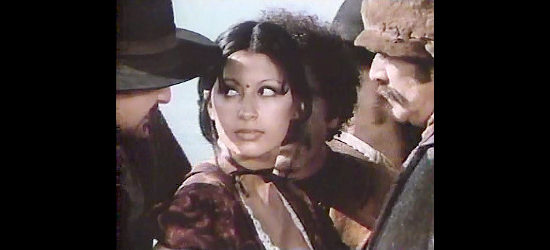
Geo Anne Sosa as Chorika, surrounded by upset gamblers who know they’ve been cheated in The Master Gunfighter (1975)
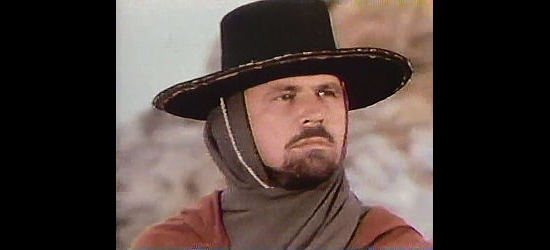
Tom Laughlin as Finley, unable to stop the massacre of an Indian village in The Master Gunfighter (1975)


